Neuropathy Conditions
Understanding Nerve Health and Neuropathy
Restoring Nerve Health Without Surgery or Medications with our NeuroRevive™ protocol
Neuropathy is a progressive nerve condition that can significantly impact your mobility, sensation, and quality of life. At The Disc Doctor, we take a comprehensive, non-surgical approach to healing damaged nerves by addressing the root cause—not just the symptoms.
If you are experiencing numbness, tingling, burning pain, weakness, or balance issues, you may be dealing with neuropathy. Our specialized treatments are designed to restore nerve function, improve circulation, and help you regain your independence.
Understanding Neuropathy: What is It?
Neuropathy occurs when the peripheral nerves—the messengers between your brain, spinal cord, and the rest of your body—become damaged or dysfunctional. These nerves control sensation, muscle movement, and automatic functions such as digestion and circulation.
When they fail to function properly, you may experience:
✔️ Numbness or tingling in hands and feet
✔️ Sharp, burning, or electric-like pain
✔️ Weakness and loss of muscle control
✔️ Balance problems and increased fall risk
✔️ Coldness or swelling in extremities
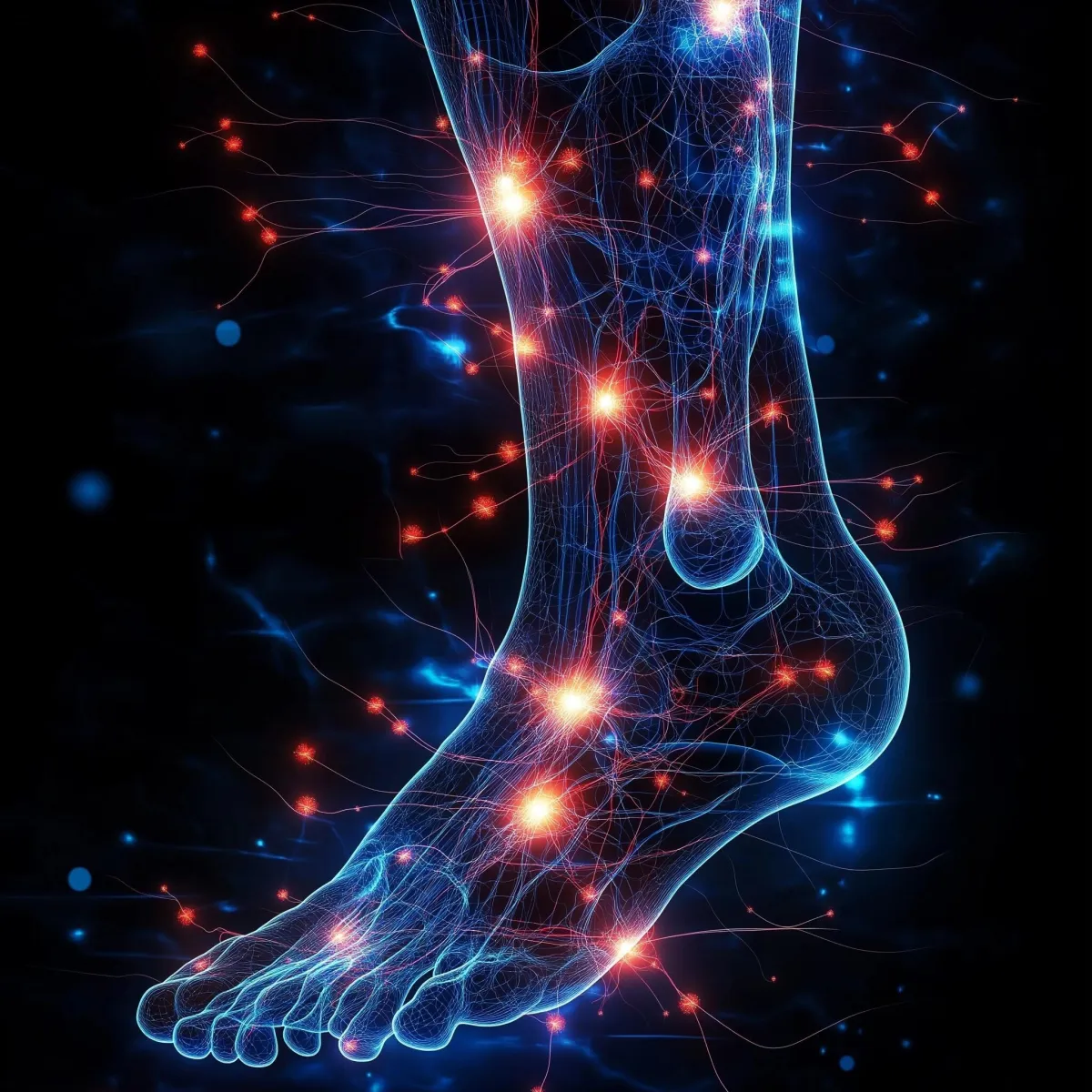
If left untreated, neuropathy can lead to permanent nerve damage and loss of mobility. Early intervention is key!
Common Causes of Neuropathy
Neuropathy can develop from several underlying conditions. Identifying the root cause is critical to effective treatment.
1. Diabetes-Related Nerve Damage
Diabetic neuropathy is one of the most common types, resulting from prolonged high blood sugar levels that damage nerve fibers. Many diabetics experience:
✔️Tingling, numbness, and pain in their feet and hands
✔️Slow-healing wounds due to reduced circulation
✔️Loss of sensation, leading to injuries and infections
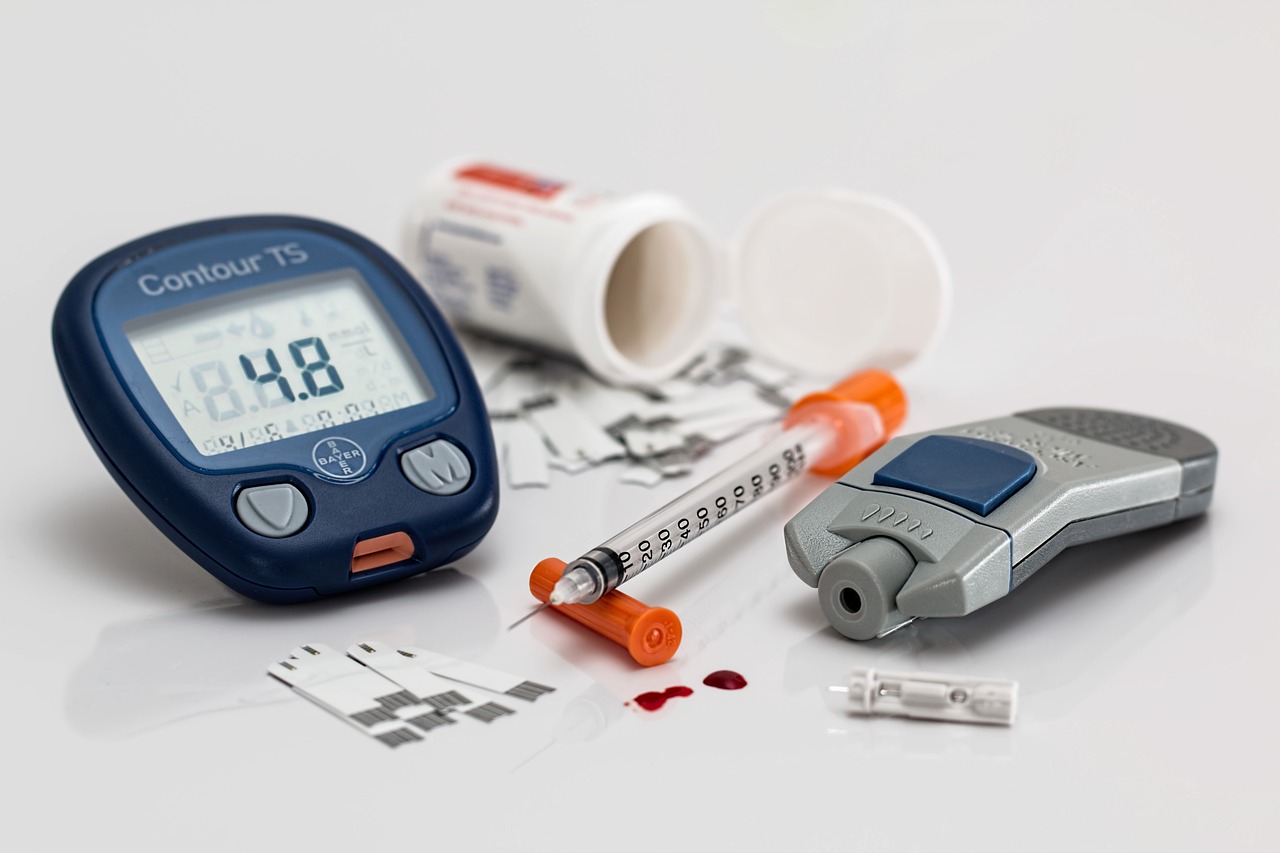
2. Autoimmune Disorders
Diseases like rheumatoid arthritis, lupus, and Guillain-Barré syndrome can trigger neuropathy as the immune system attacks nerve tissue.
3. Vitamin Deficiencies & Poor Circulation
Lack of essential vitamins like B1, B6, B12, and E can lead to nerve degeneration. Poor circulation—often linked to diabetes or cardiovascular conditions—also deprives nerves of oxygen, leading to damage.

4. Physical Trauma & Nerve Compression
Pinched nerves, herniated discs, repetitive strain injuries, and accidents can all cause neuropathy, leading to chronic pain, muscle weakness, and impaired mobility.
5. Infections & Toxic Exposure
Certain infections (Lyme disease, hepatitis, shingles, HIV) and toxic substances (including chemotherapy, heavy metals, and alcohol) can cause nerve degeneration over time.
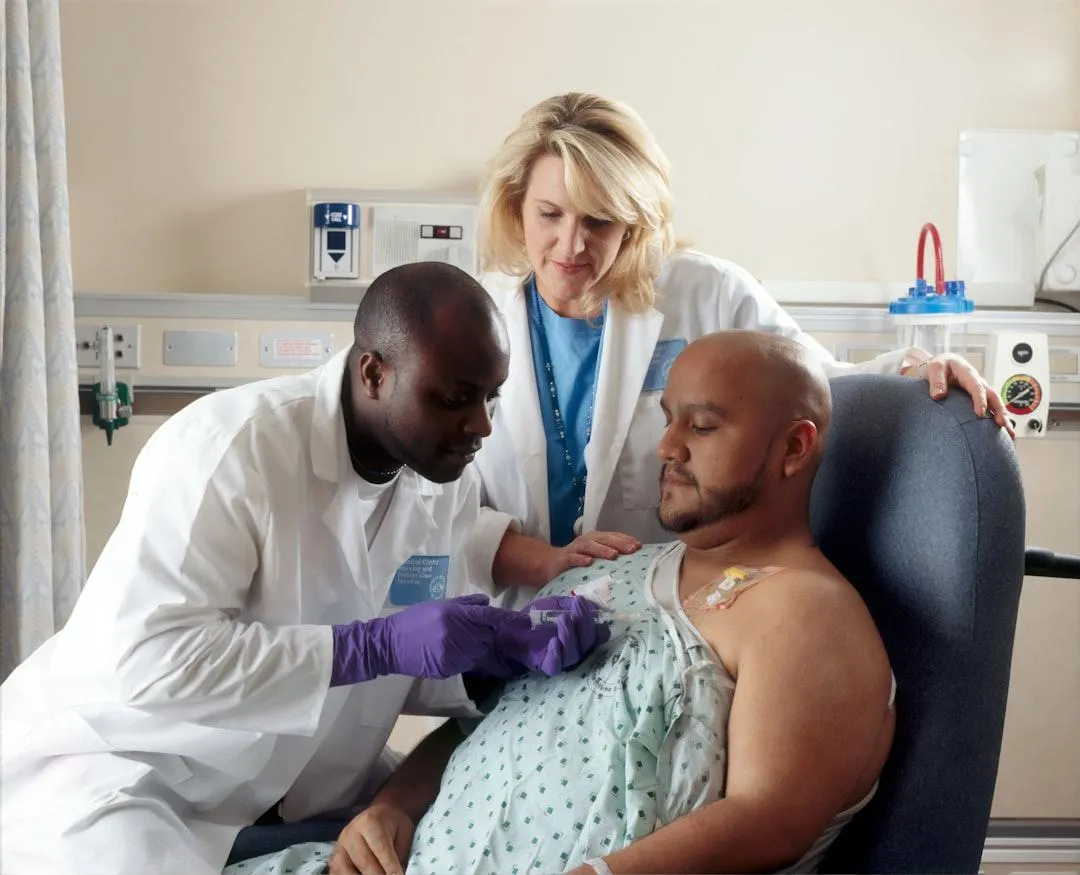
6. Genetic Conditions
Inherited disorders like Charcot-Marie-Tooth disease can predispose individuals to nerve dysfunction and muscle weakness.
Why Early Detection & Treatment of Neuropathy Matters
Understanding the various causes of neuropathy highlights the importance of maintaining a healthy lifestyle, scheduling regular medical check-ups, and addressing underlying health conditions before nerve damage progresses.
✔️ Early recognition of symptoms allows for timely intervention, preventing worsening pain, numbness, and mobility loss.
✔️ A proactive approach to treatment—including lifestyle adjustments and targeted therapies—can slow nerve degeneration and, in many cases, restore function.
✔️ Comprehensive care plans that address the root cause of neuropathy—not just symptom relief—can significantly improve quality of life.
Recognizing neuropathy symptoms early and consulting with a specialist can lead to better management and more effective treatment options. At The Disc Doctor, we focus on identifying the cause of your neuropathy and providing non-surgical, drug-free solutions to help you regain function and live pain-free.
📅 Take the First Step Toward Healing – Schedule Your Consultation Today!
By submitting this form, you consent to receive phone calls and/or text messages (e.g. appointment reminders, cancellation notices) from The Disc Doctor to the information provided. Msg & data rates may apply.
Types of Nerve Pain (Neuropathy) & Their Symptoms
A Closer Look at Neuropathy Types and Their Symptoms:
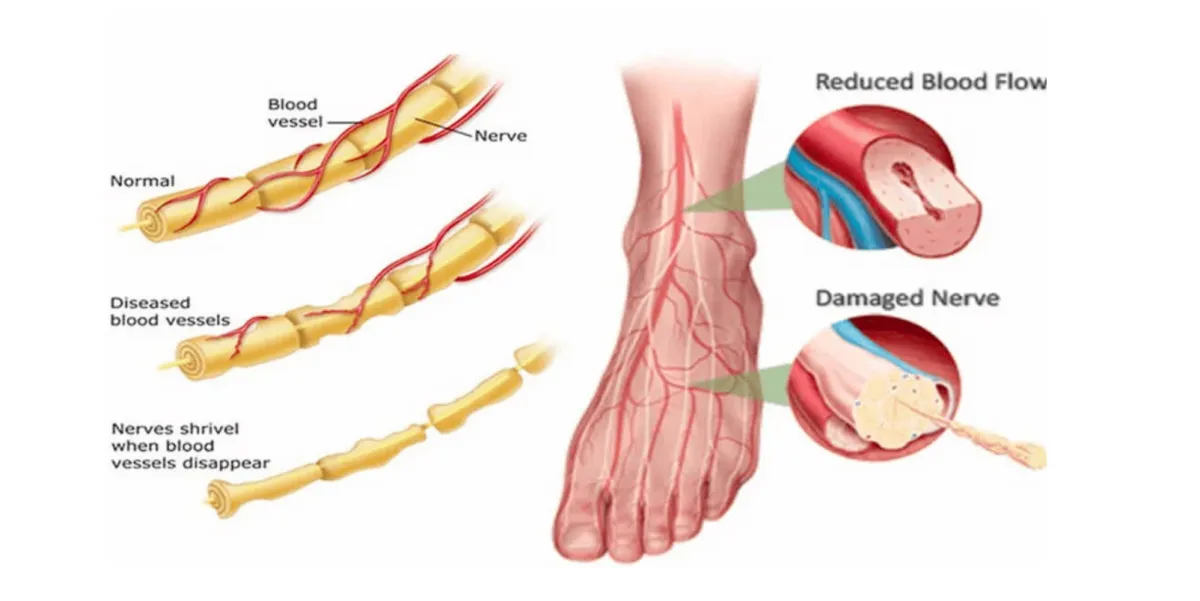
Nerve Pain in Your Arms and Legs (Peripheral Neuropathy)
Peripheral neuropathy occurs when the nerves responsible for transmitting signals between your brain, spinal cord, and extremities become damaged or dysfunctional. This can disrupt normal sensation, movement, and muscle function, leading to progressive discomfort and mobility challenges.
Symptoms of Peripheral Neuropathy:
✔️ Numbness, tingling, or "pins and needles" sensations in the hands, feet, or legs
✔️ Burning, sharp, or electric-like pain that may worsen at night
✔️ Muscle cramping, soreness, or weakness, making fine motor tasks difficult (e.g., buttoning clothes, gripping small objects)
✔️ Balance problems and increased fall risk, often due to reduced sensation in the feet
✔️ Loss of temperature or pain sensitivity, increasing the risk of unnoticed burns, cuts, or injuries
As the condition progresses, walking and daily activities may become more challenging, requiring additional support. Recognizing these symptoms early and seeking specialized neuropathy care can help slow progression, restore nerve function, and improve overall mobility.
Autonomic Neuropathy: When Nerve Damage Affects Automatic Body Functions
Autonomic neuropathy occurs when the nerves that control involuntary bodily functions—such as heart rate, digestion, bladder control, and temperature regulation—become damaged. Unlike peripheral neuropathy, which primarily affects sensation and movement, autonomic neuropathy disrupts critical processes that happen without conscious effort.
Symptoms of Autonomic Neuropathy:
✔️ Dizziness or lightheadedness when standing up due to blood pressure fluctuations
✔️ Digestive issues, including bloating, constipation, or feeling full too quickly
✔️ Bladder control problems, such as urgency, incontinence, or difficulty emptying the bladder
✔️ Sexual dysfunction, including reduced sensitivity or arousal issues
✔️ Irregular sweating, causing excessive sweating or an inability to sweat, making temperature regulation difficult
When left untreated, autonomic neuropathy can significantly impact daily life and overall well-being. If you’re experiencing these symptoms, early intervention with targeted neuropathy treatments can help improve nerve function and restore balance to your body’s automatic processes.
Focal Neuropathy: When Nerve Damage is Isolated to One Area
Focal neuropathy occurs when a single nerve or a specific group of nerves becomes damaged, leading to localized pain, weakness, or dysfunction. Unlike peripheral or autonomic neuropathy, which affects broader nerve networks, focal neuropathy targets a specific region of the body, often causing sudden or severe symptoms.
Common Types of Focal Neuropathy:
✔️ Carpal Tunnel Syndrome – Compression of the median nerve in the wrist, leading to numbness, tingling, and weakness in the hand
✔️ Bell’s Palsy – Affects the facial nerve, causing temporary paralysis or drooping on one side of the face
✔️ Ulnar Neuropathy – Nerve compression in the elbow, leading to weak grip strength and tingling in the ring and pinky fingers
✔️ Femoral Neuropathy – Affects the thigh muscles, leading to difficulty walking, pain, and muscle weakness
Depending on the affected nerve, symptoms can range from sharp, shooting pain to muscle weakness or sudden loss of function. If left untreated, focal neuropathy can worsen over time, making early diagnosis and intervention essential.
Compression Neuropathy: When Pinched Nerves Cause Pain and Dysfunction
Compression neuropathy occurs when a nerve is pinched or compressed, disrupting normal function and leading to pain, weakness, or numbness. This can happen due to injury, repetitive strain, or structural issues in the body that put excessive pressure on a nerve.
Common Causes & Conditions Linked to Compression Neuropathy:
✔️ Carpal Tunnel Syndrome – Compression of the median nerve in the wrist, leading to hand pain, weakness, and numbness
✔️ Sciatica – Compression of the sciatic nerve, causing sharp, radiating pain from the lower back down the leg
✔️ Cubital Tunnel Syndrome – Pinching of the ulnar nerve at the elbow, causing weak grip strength and tingling in the fingers
✔️ Thoracic Outlet Syndrome – Nerve compression in the neck and shoulder, leading to arm weakness and circulation problems
As compression neuropathy progresses, symptoms can spread beyond the initial site, making daily activities—such as walking, gripping objects, or maintaining posture—more difficult. Left untreated, it can lead to chronic pain, muscle deterioration, and reduced mobility.
At The Disc Doctor, we specialize in non-surgical treatments that relieve pressure on pinched nerves, restore function, and prevent long-term damage.
Recognizing the Signs of Neuropathy
Neuropathy symptoms can vary widely depending on the specific nerves affected and the underlying cause of the condition. Early detection is crucial for preventing further nerve damage and maintaining mobility, strength, and overall quality of life.
Common Symptoms of Neuropathy:
✔️ Numbness, tingling, or prickling sensations —often starting in the hands or feet and potentially spreading
✔️ Muscle weakness or loss of strength, which may progress to difficulty walking or, in severe cases, paralysis
✔️ Coordination and balance issues, making daily activities like standing or walking more difficult
✔️ Sharp, burning pain or sudden, intense bouts of discomfort that may worsen at night
✔️ Increased sensitivity to touch, where even light contact feels painful or irritating
✔️ Autonomic neuropathy symptoms, including digestive issues, bladder dysfunction, or abnormal heart rate regulation
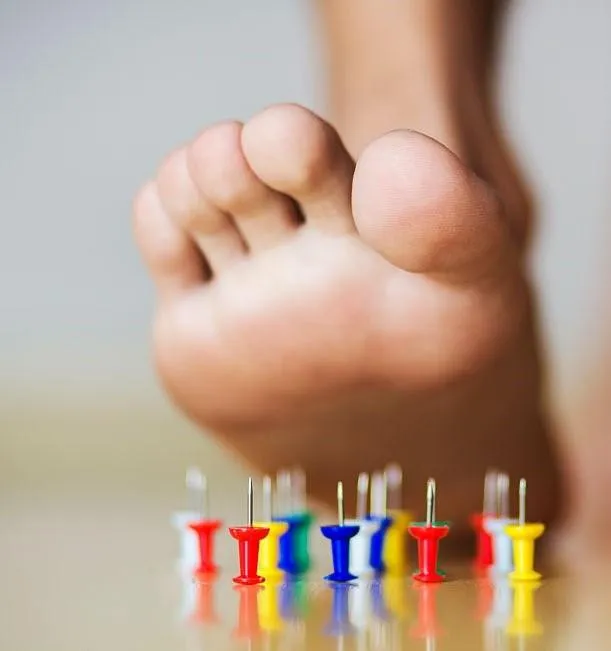
Neuropathy can significantly impact your independence, mobility, and daily activities if left untreated. The key to effective treatment is identifying and addressing the root cause—not just masking symptoms with medications.
Advanced And Best Treatment Options For Peripheral Neuropathy
NeuroRevive™ Protocol
Our Non-Surgical Approach to Neuropathy Treatment
At The Disc Doctor, we use cutting-edge, non-invasive treatments designed to heal nerves, restore function, and reduce pain—without medications or surgery.
1. Advanced Laser Therapy
✅ Uses targeted low-level laser light to stimulate nerve healing, reduce inflammation, and improve circulation.
2. Nerve Rejuvenation program
✅ A comprehensive program designed to reactivate damaged nerves, increase oxygen flow, and restore normal nerve function.
3. Spinal Decompression Therapy (For Nerve Compression Neuropathy)
✅ Relieves pressure on pinched or compressed nerves to restore function and eliminate pain
caused by disc herniations or spinal misalignments.
4. Metabolic & Vascular Support
✅ Improves blood flow, reduces inflammation, and enhances nerve repair through targeted nutritional guidance and circulatory therapies.
5. Targeted Rehabilitation & Balance Training
✅ Helps patients regain strength, coordination, and mobility to prevent falls and further nerve damage.
Why Choose The Disc Doctor for Neuropathy Treatment?
✔️ Specialized in Drug Free & Non-Surgical Neuropathy Care – We focus on natural healing and nerve restoration.
✔️Personalized Treatment Plans – Every patient receives a customized approach tailored to their specific condition.
✔️No Medications, No Surgery, No Downtime – Safe, effective, and long-lasting relief without invasive procedures.
✔️Real Results – Our patients experience pain reduction, restored function, and improved mobility.
📅 Take the First Step Toward Healing – Schedule Your Consultation Today!
🔹 Get pain relief and restore your mobility—without surgery or medication.
🔹 Book your consultation today!
By submitting this form, you consent to receive phone calls and/or text messages (e.g. appointment reminders, cancellation notices) from The Disc Doctor to the information provided. Msg & data rates may apply.



